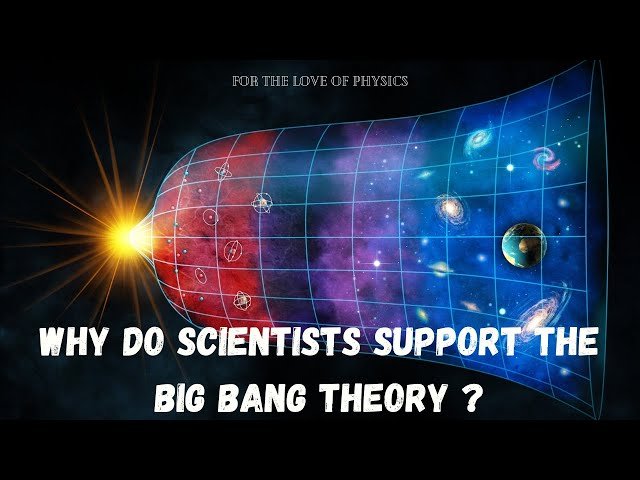The Big Bang theory is one of the most widely accepted explanations for the origin of the universe. According to this theory, the universe began as a singularity and has been expanding ever since. However, recent scientific discoveries and observations have led some scientists to question whether there may have been a second Big Bang. In this blog post, we will explore 10 reasons why scientists are investigating this intriguing possibility.
1. Expansion of the Universe
Scientists have observed that the rate of expansion of the universe is accelerating. This suggests the presence of a mysterious force called dark energy. Some scientists speculate that this dark energy could be the result of a second Big Bang.
2. Dark Matter
Dark matter is another mysterious component of the universe that cannot be directly observed. Scientists believe that dark matter makes up a significant portion of the total mass in the universe. The existence of dark matter could be explained by a second Big Bang.
3. Cosmic Microwave Background Radiation
The cosmic microwave background radiation is the afterglow of the Big Bang. It is a faint radiation that permeates the entire universe. Scientists have discovered anomalies in this radiation that could be evidence of a second Big Bang.
4. Inflation Theory
The inflation theory suggests that the universe underwent a rapid expansion in the moments following the Big Bang. This theory could also explain the existence of a second Big Bang, as it suggests that the universe may have undergone multiple periods of rapid expansion.
5. Multiverse Theory
The multiverse theory proposes the existence of multiple universes, each with its own set of physical laws. A second Big Bang could be evidence of the existence of a parallel universe that collided with our own.
6. Black Holes
Black holes are regions of spacetime with extremely strong gravitational forces. Some scientists speculate that black holes could be portals to other universes. A second Big Bang could be the result of a black hole in a parallel universe.
7. Quantum Fluctuations
Quantum fluctuations are tiny, temporary changes in the energy of a system. These fluctuations are a fundamental aspect of quantum mechanics. Some scientists believe that a second Big Bang could be the result of a quantum fluctuation in the fabric of spacetime.
8. String Theory
String theory is a theoretical framework that attempts to reconcile quantum mechanics and general relativity. According to string theory, there could be multiple universes, each with its own set of physical laws. A second Big Bang could be evidence of the existence of these parallel universes.
9. Dark Energy
Dark energy is a mysterious force that is causing the universe to expand at an accelerating rate. The origin of dark energy is still unknown, and a second Big Bang could provide an explanation for its existence.
10. Unanswered Questions
There are still many unanswered questions about the nature of the universe. Investigating the possibility of a second Big Bang could help scientists uncover new insights and deepen our understanding of the cosmos.
In conclusion, while the Big Bang theory is widely accepted, scientists are constantly exploring new ideas and theories to better understand the origins of the universe. The investigation of a second Big Bang is an exciting and thought-provoking area of research that could revolutionize our understanding of the cosmos.

